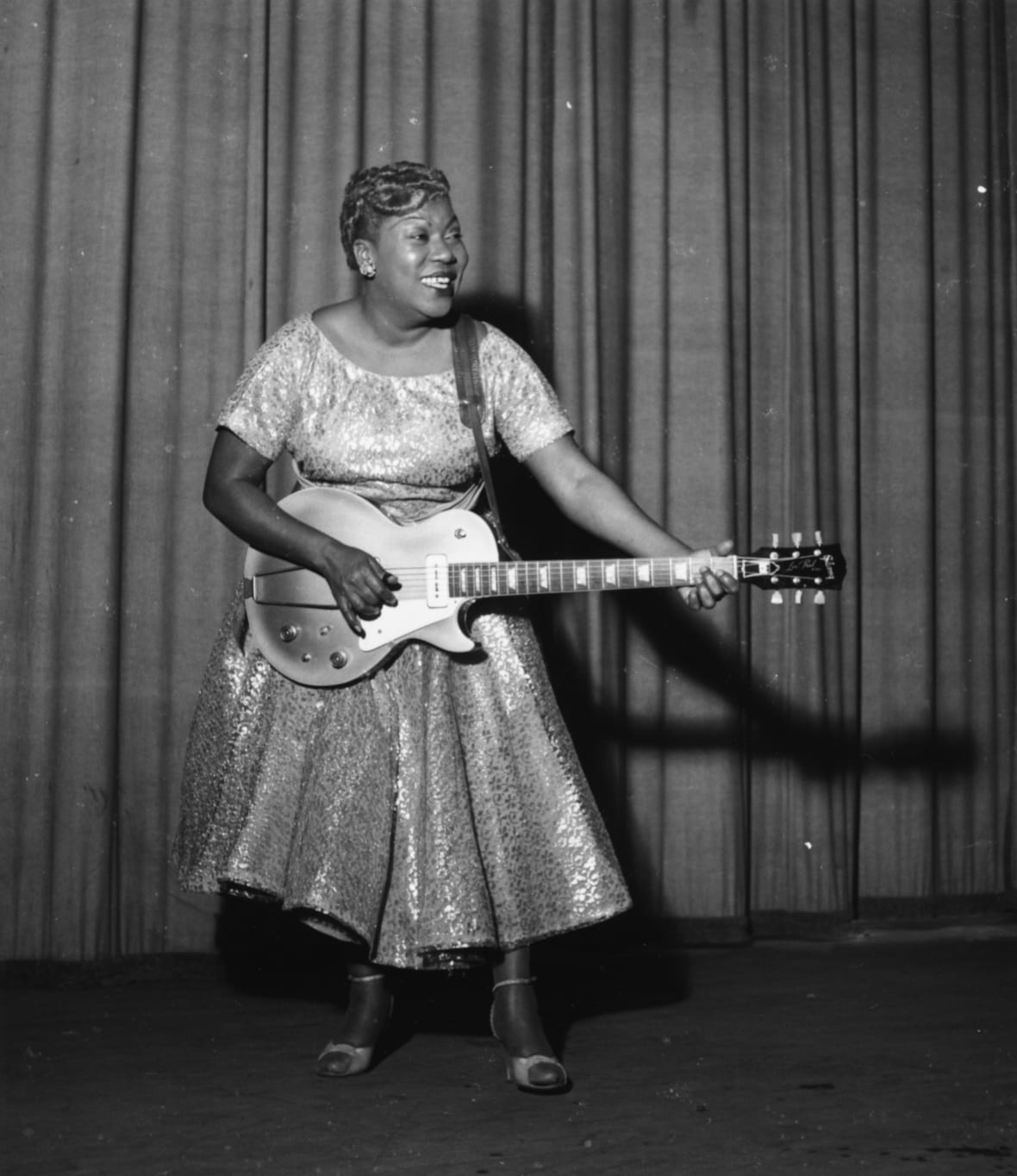When you think of rock ‘n’ roll, you might not think of high heels and a long church coat. But it turns out one of the pioneers of the genre was a Black woman who survived Jim Crow and became one of the most influential guitar players in American history.
Sister Rosetta Tharpe, is just one of the many Black women gospel singers, profiled in a new book by NY1 TV anchor and journalist Cheryl Wills, called “Isn’t Her Grace Amazing! The Women Who Changed Gospel Music.”
“She was dynamic, the original soul singer,” Wills tells theGrio in a recent appearance on TheGrio Weekly. “She had a gift to sing, and she also had talent. She knew she wanted to play an instrument, so she decided to play the guitar. And people said, ‘Girl, you can’t play no guitar. That’s a man’s instrument.’ And she said, ‘OK, if no one will teach me, I’ll teach myself.’”
Born in 1915, Tharpe, was the daughter of cotton pickers who were members of the COGIC faith. Tharpe was considered a musical prodigy by age six, and traveled around the country playing her guitar and singing in church conventions.
Her signature bop and guitar style earned her accolades and a chance to recorded gospel music at just 23 years old. Her hit song “Rock Me” is the record that is most credited with inspiring the likes of Elvis Presley, Johnny Cash and Little Richard. In 2018, she was inducted into the Rock and Roll Hall of Fame. Despite her achievements, Tharpe endured criticism for her crossover appeal and the decision to play in secular spaces like clubs.
 American singer Sister Rosetta Tharpe performing on stage with her guitar and Chris Barber’s Jazz Band, in Cardiff, Wales, in November 1957. (Photo by Chris Ware/Keystone Features/Getty Images)
American singer Sister Rosetta Tharpe performing on stage with her guitar and Chris Barber’s Jazz Band, in Cardiff, Wales, in November 1957. (Photo by Chris Ware/Keystone Features/Getty Images)“These women, of course, lived in a time when Black women, especially truly all women, but especially Black women, were to be seen and not heard,” Wills tells theGrio. She says stories like Tharpe’s and others motivated her to write a book that would elevate them to their rightful place.
“They really were pioneers and trailblazers in the music industry,” Wills said.
“Isn’t Her Grace Amazing!” also tells the stories of hitmakers with origins in gospel music such as Aretha Franklin, and modern-day music mavens like Yolanda Adams, Tamela Mann and CeCe Winans.
For Wills, this book project is personal. The longtime anchor’s grandmother, Opal Wills, was a storefront gospel singer in Queens, New York, at her husband’s church. Sister Wills traveled the country singing with him, healing souls with her words and music. Wills bore witness to her power but also would learn that even the gospel music industry could be sexist toward women singers.
“These women were marginalized,” Wills says. “They were told that this is a man’s platform. So when you learn about the power of these women who took the spotlight, grabbed the spotlight and said, ‘Now my voice matters and I have a testimony up in here,’ when you see the power that they use, the inner strength in spite of people looking them up and down…for them to clap back and say, ‘no, my place is right on this microphone?’ The music you love today, they helped create.”

Natasha S. Alford is VP of Digital Content and a Senior Correspondent at theGrio. An award-winning journalist, filmmaker, and TV personality, Alford is author of the forthcoming book “American Negra.” (Harper Collins) Follow her on Twitter and Instagram at @natashasalford.
Watch the full interview with journalist and author Cheryl Wills above, and tune in to The Grio Weekly, each Friday at 2 p.m., 10 p.m. ET on theGrio’s streaming channels and mobile app.
TheGrio is FREE on your TV via Apple TV, Amazon Fire, Roku, and Android TV. TheGrio’s Black Podcast Network is free too. Download theGrio mobile apps today!
.png)











 English (US) ·
English (US) ·